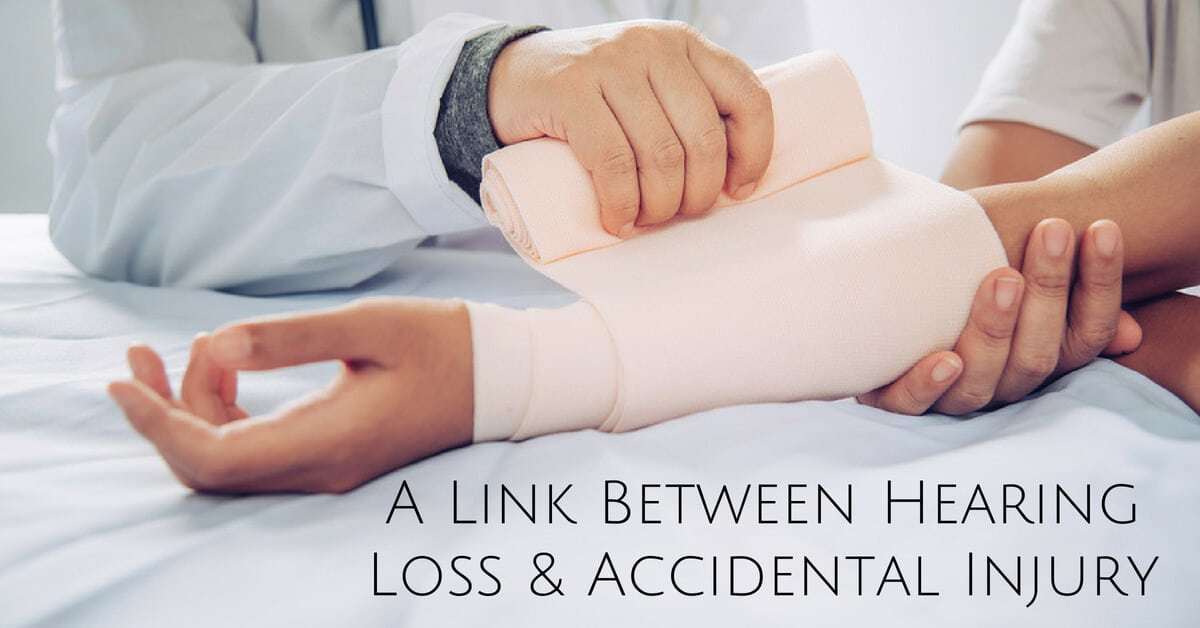Hearing loss is quite common in our society, affecting about 48 million American adults and about 17% of children aged 12-19. With untreated hearing loss, of course it is difficult to hear our environment, follow conversations and participate in social situations. Hearing loss permeates and can have a negative impact on almost all aspects of our lives; including social and emotional, mental, and physical health.
Did you know that hearing loss has also been linked to an increased risk of accidental injury as well?
Recent Study on Hearing Loss and Safety
Recently, researchers out of the Department of Otolaryngology at the University of California, Irvine took CDC data from 2007-2015 to study a potential link between hearing loss and an increased risk for accidental injury. Over a three-month period, accidental injuries were reported by about 3% of the total population and those with hearing issues were twice as likely to report injury than those with normal or excellent hearing.
Hossein Mahboubi, one of the co-authors of this study remarked that one of the most “eye opening” findings of the study was that people with mild hearing losses were more likely to have experienced accidental injury than those with more severe hearing concerns.
More research is needed on this link, especially since the CDC data used was based on interview, therefore, degrees of hearing loss were self-reported by participants and are subjective. This is especially important to note because with hearing loss in general, people are more likely to deny the loss or simply not notice it at all than many other common health concerns.
More Scientific Research on Hearing Loss and Accidental Injury
In 2012, a well-known study out of Johns Hopkins School of Medicine was published regarding the link between hearing loss and an increased risk falling – one of the major risks for severe injury amongst older adults in the United States. According to the CDC, one-in-five falls results in serious injury such as broken bones or head trauma (CDC).
In their study, the researchers out of Johns Hopkins used data from people aged 20-69 who were surveyed by the National Health and Nutrition Examination Survey during 2001-2004. The 2,017 people chosen for the study all had their hearing assessed professionally, and were also asked about their history with falling in the past year. Data was adjusted for other factors such as age, socio-economic status, ethnicity and vestibular function.
Through this study, the researchers found that even when the data was adjusted for these other factors, people with a mild hearing loss (25 decibels of loss) were about 3 times more likely to have experienced a fall in the last year than those without hearing loss. For every additional 10 decibels of hearing loss, the risk of falling increased by 1.4-fold. Therefore, the more severe the hearing loss the higher the risk for accidental falls that could results in injury (Hopkins Medicine).
Researchers note that one or two key factors may play a role in the increased risk of falls and injury amongst people with hearing loss. First, those with hearing loss may be less aware of their environment, and therefore more prone to falling. The second possible explanation is cognitive overload. When the brain is focusing all of its energy attempting to hear, the brain has limited resources to give to other important cognitive functions – such as balance (Hopkins Medicine).
Reduce Your Risk and Get a Hearing Assessment
It is important that, as a society, we begin to view hearing loss for what it is, a health concern that brings with it many additional risks. Hearing loss is common amongst all age groups, and it is important we stop viewing it as a sign of “getting older”. If you have begun to notice some of the early signs of hearing loss such as difficulty following group conversations, it is important to schedule a hearing assessment as soon as possible. Protect yourself from untreated hearing loss and protect yourself from higher risks of many other issues, including mental decline and increased risk for accidental injury.

